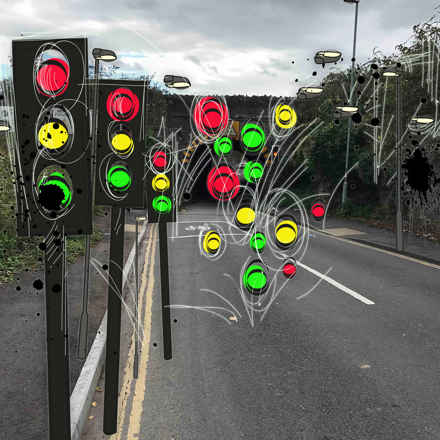New Charles Bonnet Syndrome study could be “life changing”
Posted: Wednesday 16 November 2022
Researchers at Royal Holloway University of London will be the first to study the effectiveness of techniques used to manage visual hallucinations caused by sight loss.
The study, funded by the Macular Society, will test whether the two most common techniques recommended to manage Charles Bonnet Syndrome (CBS) are effective in reducing hallucinations.
According to Rhian Tait, a research assistant on the project, the study could be “life changing” for people with CBS, as it will investigate whether specific eye movements and distraction/interruption techniques can reduce the impact of the hallucinations.
What is the project?
Until now, no studies have been undertaken to prove the effectiveness of these techniques.
Rhian said: “We’re looking at the impact of hallucinations on people with visual impairment and asking people to test out therapies which are evidence-based, effective therapies to see if we can support them whether to reduce the frequency of the hallucinations they experience but also looking at that distress and the severity of the hallucinations as well.
“We’ve been talking about things such as rapid eye movement and distraction techniques but these are techniques that haven’t been looked into much before, so we’re really trying to focus on how effective these therapies are.”
What does this project hope to achieve?
It is thought that better management, rather than finding a way to stop Charles Bonnet Syndrome altogether, could be a likely outcome of the study.
Rhian said: “We’re really trying to support people in having a technique to help manage their hallucinations better. It would be great to completely eliminate hallucinations but being realistic, we want to reduce the amount of people experiencing these hallucinations and the severity and stress levels that these cause people as well.”
Rhian said by analysing recommended techniques, the project could mean people won’t have to be so affected by the hallucinations.
She said: “It is something that can be quite scary for some people and difficult to explain to loved ones, friends or colleagues, so we will be able to have an evidence-base for people to say ‘this is what I’m experiencing, these are the things I need to try out’.
“Whether you are getting friends or family involved, it’s about just being able to feel more confident in understanding your own condition for what it is but also finding ways to manage that better.”
How important could this research be?
“When I think about my previous roles when I would have heard about the hallucinations that people experience, we know they can vary from dots, to flashing lights to shapes or full scenes; from seeing a waterfall or the ground turning to grass when it’s completely different to the bedroom you’re sitting in. I think it will be quite life changing for people if these techniques work.
“The more we record that and understand the data and see how these things can affect people in a positive way will be amazing.”
What was your motivation behind getting involved in Charles Bonnet Syndrome research?
Rhian explained: “I worked on a study a few years ago about Charles Bonnet Syndrome but it was more focused on people who had other underlying conditions, such as dementia or Parkinson’s, the prevalence of hallucinations and the similarities or differences in Charles Bonnet Syndrome as well.
“I realised just how many people were experiencing this condition and how impactful it was on people’s day to day. At the moment, working as a psychological therapist, I see the impact it has on people’s mental health, how they struggle to adapt and struggle to understand what they are experiencing.
“It’s really important for me to be involved in something that is looking at this directly and really trying to support people to manage their symptoms better and understand them.”
“This is a condition which has been around for so long and it’s so important to be able to have something that’s going to support people to be able to have a better of quality of life if they are suffering.”
How do people sign up to the study?
Rhian said: “As with any research we know it’s expensive so having people on board and having people championing this research and seeing the need for it as much as we do is amazing.”
The researchers involved in this study are continuing to recruit heading into 2024.
Anyone interested in taking part can email the team at Royal Holloway University London using the email address which has been setup for this study - cbs.study1@gmail.com
Watch Rhian and Professor Robin Walker of Royal Holloway University of London discuss the project in the video below.
